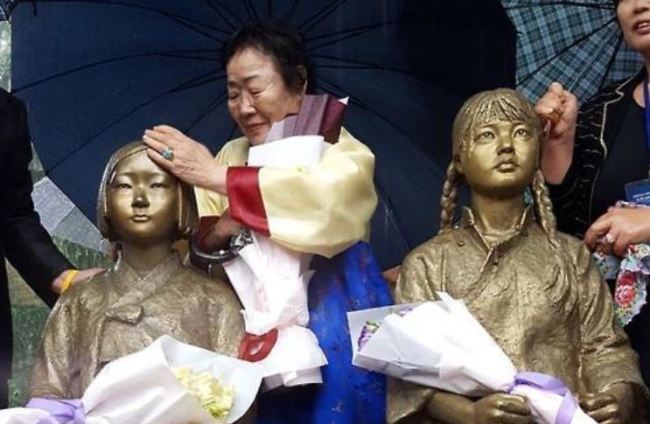Long-term approach needed to handle sexual slavery issue with Japan: envoy
By YonhapPublished : Jan. 23, 2018 - 09:33
TOKYO -- South Korea needs to take a "long-term" approach in dealing with the decadeslong feud with Japan over its wartime sexual slavery of Korean women, South Korea's top envoy in Japan has said.
Amb. Lee Su-hoon made the remark early last week during a meeting with a group of reporters who visited Tokyo as part of an exchange program for journalists between the two countries.
"Let's take a long-term approach with a deep breath," he said. "If you rush to resolve it and put (a patch) to it again and again, the wounds could get worse."
"The comfort women issue cannot be resolved through the (2015) accord, but it is also difficult for the two countries to make any additional efforts," he added.

The term comfort women euphemistically refers to the victims of Japan's sexual enslavement before and during World War II.
Under the deal reached Dec. 28, 2015, the neighbors agreed to "finally and irreversibly" resolve the comfort women issue. Tokyo apologized for its colonial-era atrocities and pledged 1 billion yen ($8.9 million) to a foundation dedicated to supporting the victims.
South Korea recently completed a review of the deal and concluded that sufficient efforts were not made to reflect the views of victims before reaching the accord.
Though not seeking renegotiation, the government vowed to set aside its own money to help the victims heal their wounds and recover their dignity, instead of using the funds that Japan contributed under the agreement. Japan has called on South Korea to adhere to the accord and said any attempt to revise or scrap it could hurt bilateral relations.
The ambassador said that Seoul's latest action might be intended to "stitch up" a problem between the two countries so as not to make things worse at a time when there are few options to choose from.
"It appears to be a solution similar to one for the THAAD controversy," he said, referring to feud between South Korea and China over the former's move to allow the installation of a US antimissile system on its soil.
After a protracted dispute over the armament placement that had spilled over into other areas including business and culture, the two neighbors announced a deal in October to put their ties back on track, though they reaffirmed their different stances on the issue. (Yonhap)








![[Graphic News] More Koreans say they plan long-distance trips this year](http://res.heraldm.com/phpwas/restmb_idxmake.php?idx=644&simg=/content/image/2024/04/17/20240417050828_0.gif&u=)
![[KH Explains] Hyundai's full hybrid edge to pay off amid slow transition to pure EVs](http://res.heraldm.com/phpwas/restmb_idxmake.php?idx=644&simg=/content/image/2024/04/18/20240418050645_0.jpg&u=20240419100350)







![[KH Explains] Hyundai's full hybrid edge to pay off amid slow transition to pure EVs](http://res.heraldm.com/phpwas/restmb_idxmake.php?idx=652&simg=/content/image/2024/04/18/20240418050645_0.jpg&u=20240419100350)

